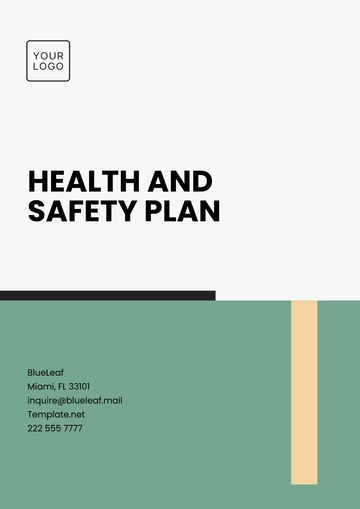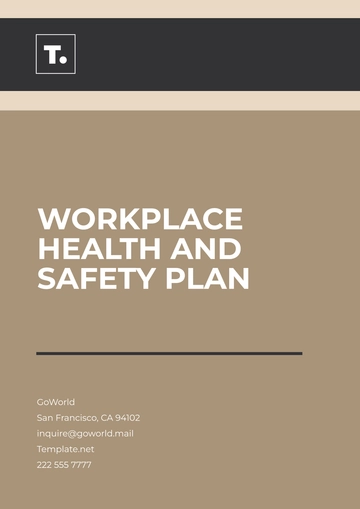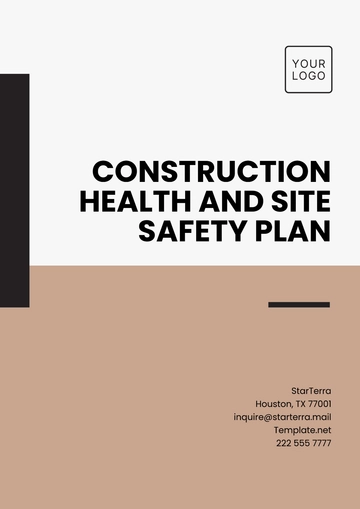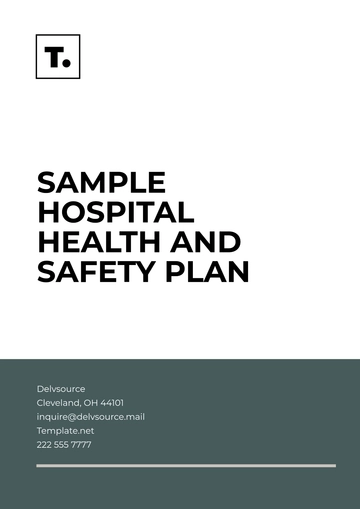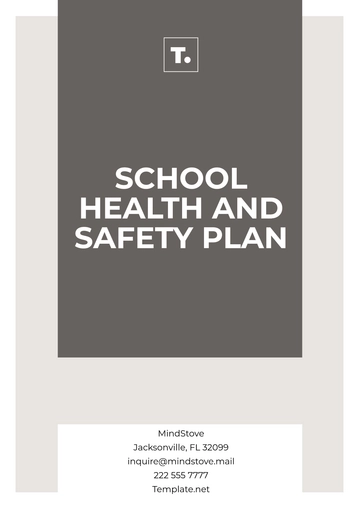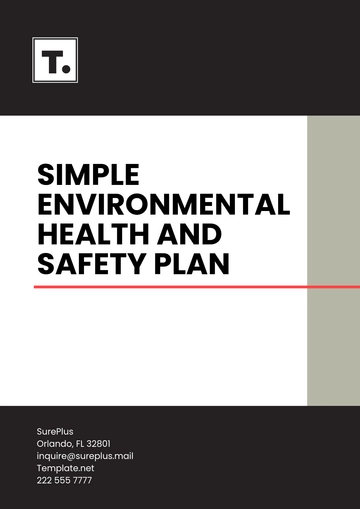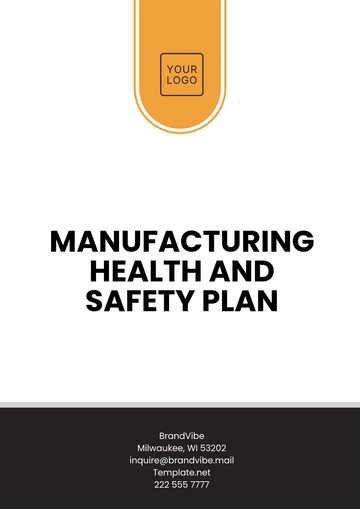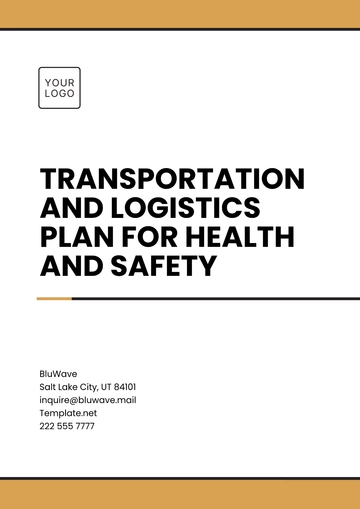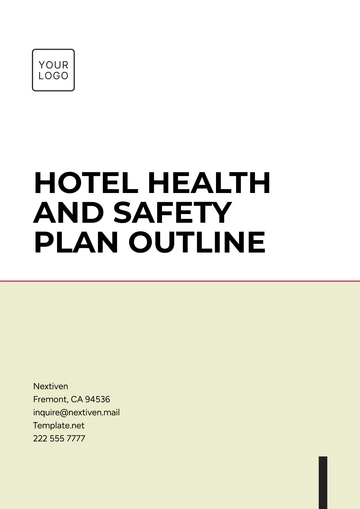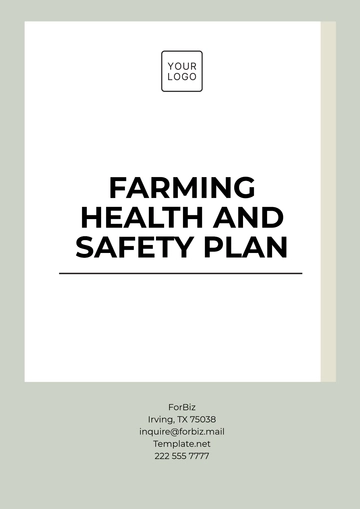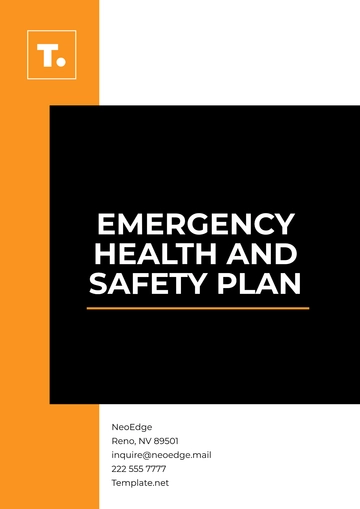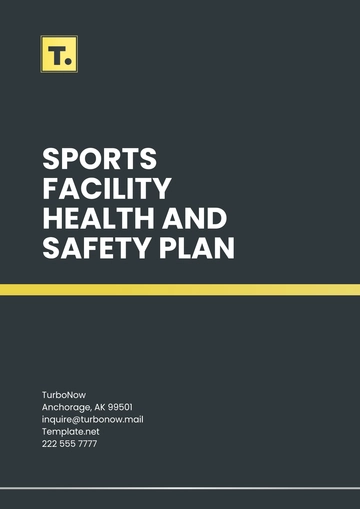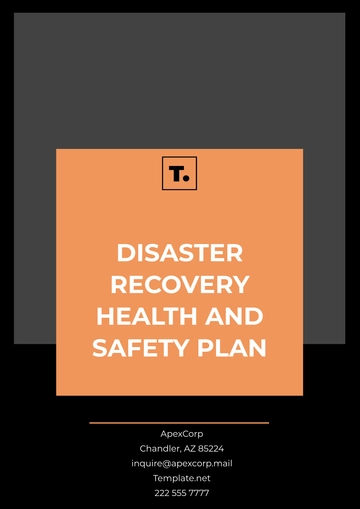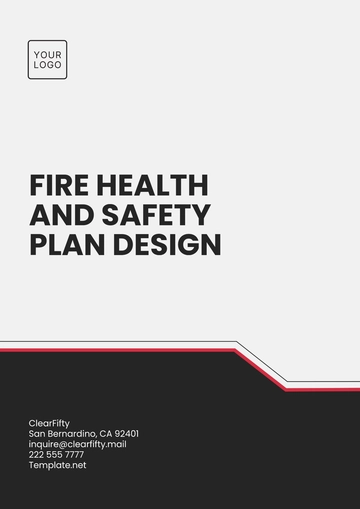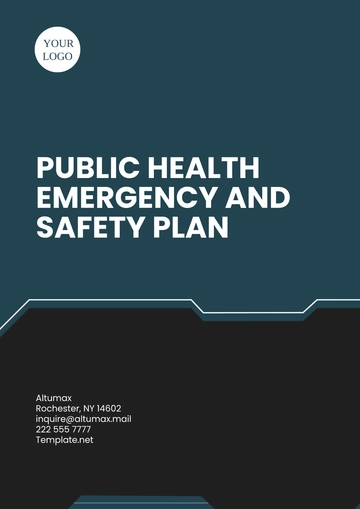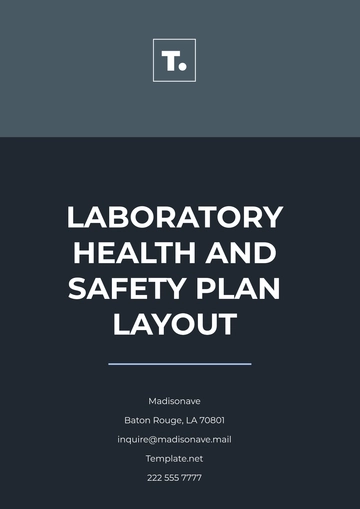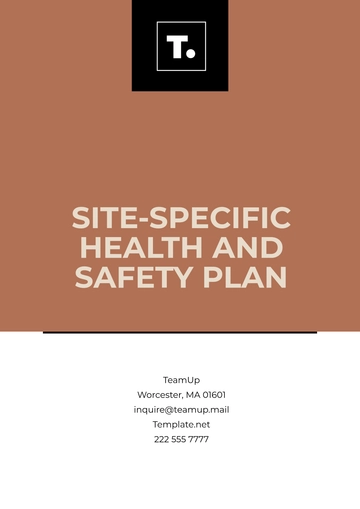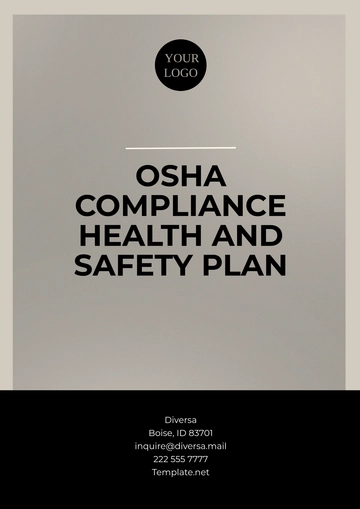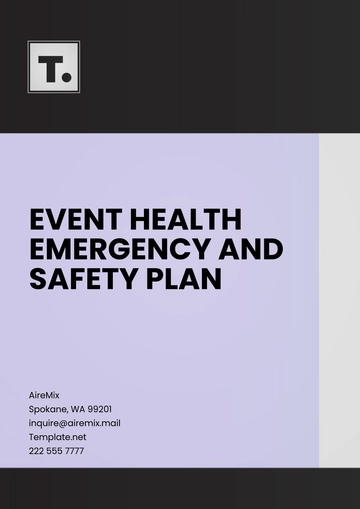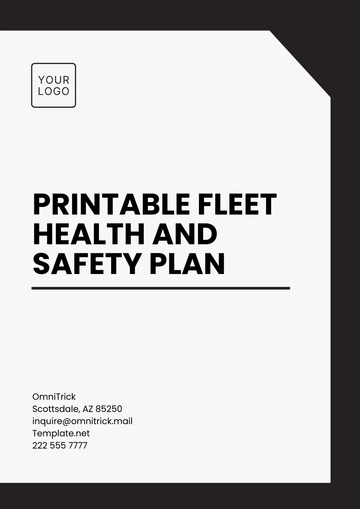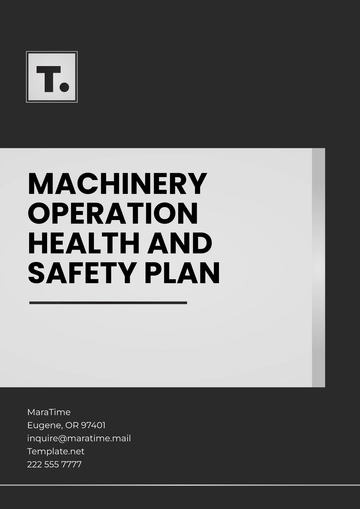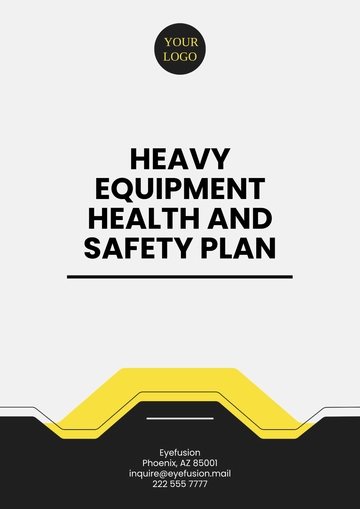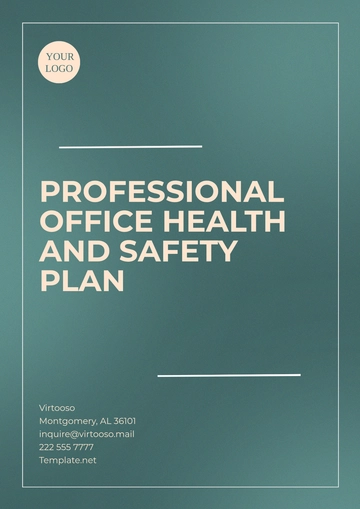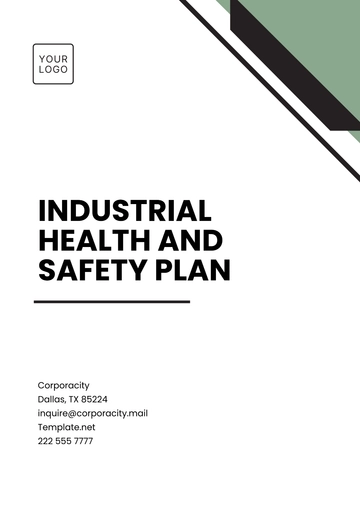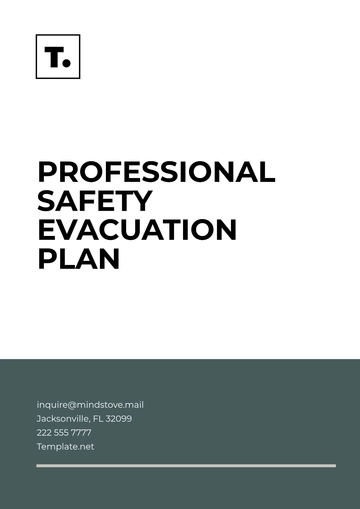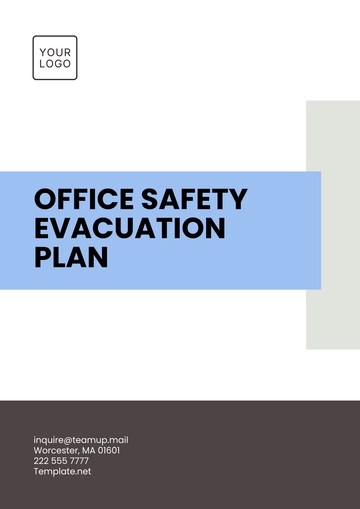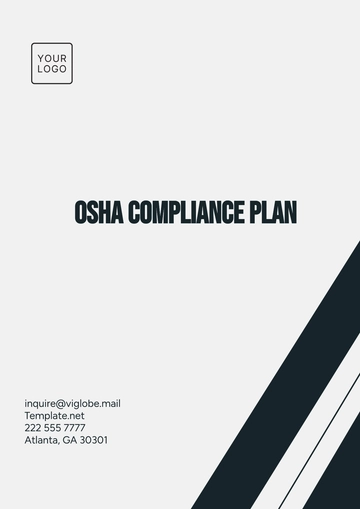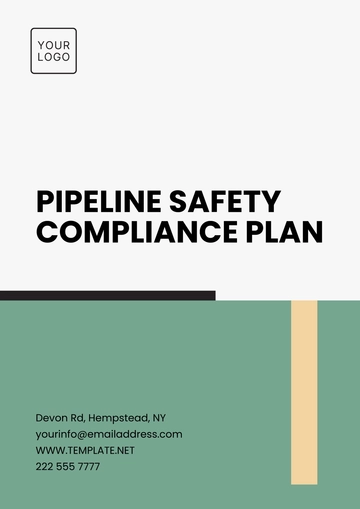Free Clinical Trial Safety Management Plan
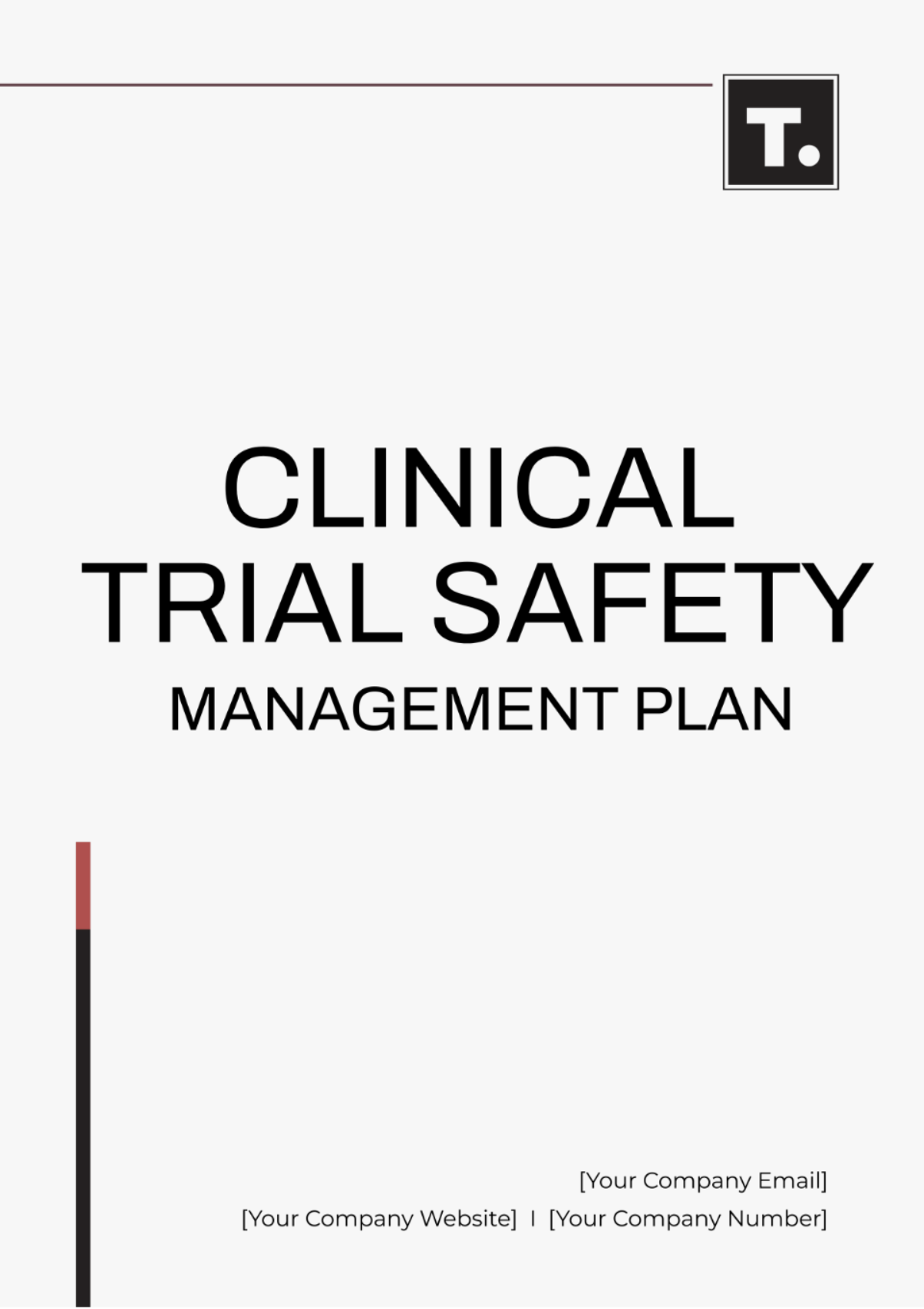
I. Introduction
[Your Company Name] is committed to ensuring the highest level of safety for all participants involved in our clinical trials. This Clinical Trial Safety Management Plan outlines comprehensive procedures to guarantee participant safety throughout the trial. Adhering strictly to regulatory guidelines and incorporating best practices in risk management, this plan aims to safeguard participant welfare and ensure compliance with all applicable regulations.
II. Contact Information
Emergency Contact:
Contact Number: [Your Company Number]
Contact Email: [Your Email]
Safety Monitoring Committee (SMC) Contact:
Chairperson: [Your Name]
Contact Number: [Your Phone Number]
Email: [Your Email]
III. Roles and Responsibilities
1. Principal Investigator (PI):
Oversee the clinical trial, ensuring all procedures follow the safety management plan.
Make decisions on trial modifications based on safety data.
2. Safety Officer:
Monitor participant safety continuously.
Manage adverse events (AEs) and ensure timely reporting to regulatory authorities.
3. Clinical Trial Coordinator:
Facilitate trial processes and maintain communication between all stakeholders.
Ensure protocol adherence and coordinate trial logistics.
4. Data Safety Monitoring Board (DSMB):
Independently review and assess safety data.
Provide trial continuation, modification, or termination recommendations based on safety findings.
IV. Risk Management
1. Risk Identification:
Identify potential risks associated with the trial, including medical, operational, and logistical risks.
2. Risk Assessment:
Assess identified risks in terms of likelihood and impact on participant safety and trial success.
3. Risk Mitigation:
Implement measures to mitigate identified risks.
Ensure ongoing monitoring and adjustment of strategies as necessary.
Develop a risk management matrix to prioritize and address risks effectively.
V. Adverse Event Reporting
1. Adverse Event Definition:
An adverse event is any untoward medical occurrence in a participant, which does not necessarily have a causal relationship with the study intervention.
2. Reporting Process:
All adverse events must be reported immediately to the Safety Officer and documented in the case report form (CRF).
Serious adverse events (SAEs) must be reported to the regulatory authorities within 24 hours and documented in detail.
3. Follow-Up:
Continuous monitoring of adverse events with timely follow-up to assess the outcome.
Implement necessary changes to the protocol to mitigate future occurrences.
VI. Participant Safety
1. Informed Consent:
Ensure participants are fully informed about the trial, including potential risks and benefits, before giving their consent.
Provide a detailed informed consent form (ICF) approved by the Institutional Review Board (IRB).
2. Continuous Monitoring:
Conduct regular health assessments and monitoring, including vital signs, lab tests, and other relevant clinical evaluations.
Use real-time data monitoring systems to detect and manage emerging safety issues promptly.
3. Support Resources:
Provide participants with access to support resources, including medical support and counseling services, to ensure their well-being.
Establish a participant hotline for 24/7 access to trial-related information and support.
VII. Compliance and Review
1. Regulatory Compliance:
Ensure all trial procedures comply with national and international regulatory guidelines, including GCP (Good Clinical Practice) standards.
Maintain detailed documentation and audit trails for all safety-related activities.
2. Regular Review:
Regularly review and update the Clinical Trial Safety Management Plan to incorporate new findings, regulations, or best practices.
Schedule periodic safety audits and DSMB meetings to review safety data and trial conduct.
VIII. Encouragement and Support
[Your Company Name] believes in the importance of fostering a supportive and empowering environment. We encourage all team members to actively participate in safety practices and to seek assistance whenever needed. Your vigilance and commitment are vital to the success of our clinical trials and the safety of our participants.
For any inquiries or further information, please do not hesitate to contact us at [Your Email] or visit our website at [Your Company Website].
- 100% Customizable, free editor
- Access 1 Million+ Templates, photo’s & graphics
- Download or share as a template
- Click and replace photos, graphics, text, backgrounds
- Resize, crop, AI write & more
- Access advanced editor
Enhance clinical trial safety with Template.net's Clinical Trial Safety Management Plan Template. This fully customizable and editable template ensures compliance and efficiency. Easily editable in our AI Editor Tool, it provides a streamlined solution for managing safety protocols. Ensure rigorous safety standards with Template.net's professional, user-friendly template.
You may also like
- Finance Plan
- Construction Plan
- Sales Plan
- Development Plan
- Career Plan
- Budget Plan
- HR Plan
- Education Plan
- Transition Plan
- Work Plan
- Training Plan
- Communication Plan
- Operation Plan
- Health And Safety Plan
- Strategy Plan
- Professional Development Plan
- Advertising Plan
- Risk Management Plan
- Restaurant Plan
- School Plan
- Nursing Home Patient Care Plan
- Nursing Care Plan
- Plan Event
- Startup Plan
- Social Media Plan
- Staffing Plan
- Annual Plan
- Content Plan
- Payment Plan
- Implementation Plan
- Hotel Plan
- Workout Plan
- Accounting Plan
- Campaign Plan
- Essay Plan
- 30 60 90 Day Plan
- Research Plan
- Recruitment Plan
- 90 Day Plan
- Quarterly Plan
- Emergency Plan
- 5 Year Plan
- Gym Plan
- Personal Plan
- IT and Software Plan
- Treatment Plan
- Real Estate Plan
- Law Firm Plan
- Healthcare Plan
- Improvement Plan
- Media Plan
- 5 Year Business Plan
- Learning Plan
- Marketing Campaign Plan
- Travel Agency Plan
- Cleaning Services Plan
- Interior Design Plan
- Performance Plan
- PR Plan
- Birth Plan
- Life Plan
- SEO Plan
- Disaster Recovery Plan
- Continuity Plan
- Launch Plan
- Legal Plan
- Behavior Plan
- Performance Improvement Plan
- Salon Plan
- Security Plan
- Security Management Plan
- Employee Development Plan
- Quality Plan
- Service Improvement Plan
- Growth Plan
- Incident Response Plan
- Basketball Plan
- Emergency Action Plan
- Product Launch Plan
- Spa Plan
- Employee Training Plan
- Data Analysis Plan
- Employee Action Plan
- Territory Plan
- Audit Plan
- Classroom Plan
- Activity Plan
- Parenting Plan
- Care Plan
- Project Execution Plan
- Exercise Plan
- Internship Plan
- Software Development Plan
- Continuous Improvement Plan
- Leave Plan
- 90 Day Sales Plan
- Advertising Agency Plan
- Employee Transition Plan
- Smart Action Plan
- Workplace Safety Plan
- Behavior Change Plan
- Contingency Plan
- Continuity of Operations Plan
- Health Plan
- Quality Control Plan
- Self Plan
- Sports Development Plan
- Change Management Plan
- Ecommerce Plan
- Personal Financial Plan
- Process Improvement Plan
- 30-60-90 Day Sales Plan
- Crisis Management Plan
- Engagement Plan
- Execution Plan
- Pandemic Plan
- Quality Assurance Plan
- Service Continuity Plan
- Agile Project Plan
- Fundraising Plan
- Job Transition Plan
- Asset Maintenance Plan
- Maintenance Plan
- Software Test Plan
- Staff Training and Development Plan
- 3 Year Plan
- Brand Activation Plan
- Release Plan
- Resource Plan
- Risk Mitigation Plan
- Teacher Plan
- 30 60 90 Day Plan for New Manager
- Food Safety Plan
- Food Truck Plan
- Hiring Plan
- Quality Management Plan
- Wellness Plan
- Behavior Intervention Plan
- Bonus Plan
- Investment Plan
- Maternity Leave Plan
- Pandemic Response Plan
- Succession Planning
- Coaching Plan
- Configuration Management Plan
- Remote Work Plan
- Self Care Plan
- Teaching Plan
- 100-Day Plan
- HACCP Plan
- Student Plan
- Sustainability Plan
- 30 60 90 Day Plan for Interview
- Access Plan
- Site Specific Safety Plan
